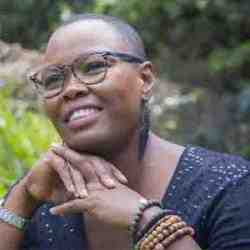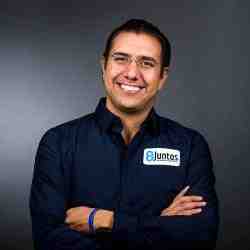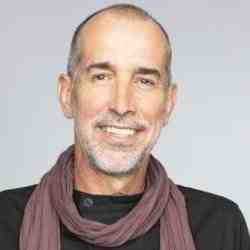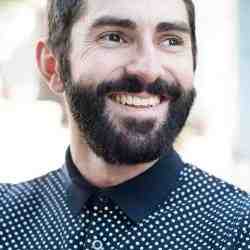Introduction
Kristina Saffran and Project HEAL are building a new model of community-based peer support and care for people with eating disorders—while simultaneously working to eliminate the barriers between people with EDs and the full recovery they deserve.
The New Idea
Kristina Saffran is transforming the tools available to people with eating disorders and challenging the mental health care system to think differently about treatment access. Her two-pronged approach provides a new support model for people who aren’t reached by current options, while also working with stakeholders, including insurance companies themselves, to make all types of treatment more accessible.
First, through Project HEAL’s Communities of HEALing program, Kristina is building a peer support network for people with eating disorders, the only one of its kind, featuring both group and one-on-one support. This brings community and care to people before they reach the crisis level required for inpatient care and offers tailored support to ED sufferers who might be alienated or underserved by traditional treatment strategies. In this new model for peer support, the mentors and support group leaders are extensively trained and supported in providing quality care that may be reimbursed by insurance.
Second, Project HEAL’s Treatment Access Program ensures equitable access to care for every person who needs it, regardless of financial situation. The program establishes partnerships with treatment providers and insurance companies committed to the new treat-to-outcome coverage model and identifies violations of parity rules governing mental health coverage. The ultimate goal is to position Project HEAL’s 40-chapter network as a series of hubs that help individuals and families navigate the system, a system made more supportive through Project HEAL’s work to fill gaps and bring stakeholders together.
These core changes, providing community wellness options and ensuring that all tiers of support are attainable, have the potential not just to save and enrich the lives of those struggling with eating disorders, but also to create a paradigm shift from treating emergency mental illness to promoting long-term mental health.
The Problem
Eating disorders affect all communities. Each year, one in ten Americans will suffer from an eating disorder, including people of every age, gender, ethnicity, race, and life experience. Ten percent of sufferers will die from their ED, and another 30 percent will struggle with the illness for their entire lives. The high mortality and morbidity associated with EDs stem, in part, from the fact that so many face the disease without adequate support or recovery tools. The prevailing model for ED treatment and recovery is narrowly focused on acute clinical care in a residential or inpatient facility. While this type of treatment works for some sufferers, over half of individuals will relapse after treatment ends. In addition, many patients who don't fit a classic eating disorder stereotype—for example, people of color, people in higher-weight bodies, or male-identified people—are frequently under- and misdiagnosed.
With high out-of-pocket costs, confusing insurance coverage, and limited recovery resources, 70 percent of sufferers never access treatment at all. ED sufferers need low-cost options for recovery that integrate more gracefully with everyday life and relationships. Better care for people who have not yet reached a state of emergency will also prevent people from reaching that state of emergency, which can be lifesaving.
A broader landscape of recovery options is needed to provide flexibility and accessibility for all who suffer from eating disorders. Currently, the system of available treatment is expensive and opaque. Although insurance companies are typically obligated to cover mental health conditions equally with physical health conditions, parity violations are common. Even when parity rules are followed, insurance plans vary widely in quality, and patients and families do not necessarily know how or when to appeal coverage denials. Both insurance companies and providers of care must commit to an outcomes-focused model that provides treatment until a patient has reached wellness goals, rather than simply offering a certain number of sessions or length of inpatient stay and expecting those to be one-size-fits-all. Patients and caregivers need support in navigating treatment, support that works in tandem with providers and insurance companies to build the structures needed to radically transform care for people with eating disorders and build a system applicable to reimagining mental health care more broadly.
The Strategy
Kristina and Project HEAL have a two-pronged approach to ensuring treatment access. First Communities of HEALing builds new treatment models in the form of robust peer support, both support groups and 1:1 mentoring. There is no existing network of peer support for eating disorders. A member of Communities of HEALing who has also attended Eating Disorders Anonymous was clear that EDA is not a support group, as attendees are not supposed to speak directly to each other or discuss the things they share with each other. These things are called “crosstalk” and are banned in AA-style meetings. Members speak only to the moderator in front of the group about their personal experiences. It is a “program with group meetings,” with strict rules and obligations, which can feel “confining and frightening.”
She describes Communities of HEALing, by contrast, as much “freer.” Other than maintaining a safe space and respecting other participants, there are no rules for participation. There is no obligation to follow certain religious practices, rules, or meal plans outside of group. Participants are able to talk to and support one another, a very different model than EDA. While providing participants with the freedom to build a sharing, healing community, the program also offers facilitators and mentors, themselves recovered ED survivors, the supportive structure needed to supply care to others. Facilitators and mentors are given 35 hours of best-practices training and regular check-ins with clinicians, who have advice on how to handle specific, difficult issues. This support ensures a high-quality healing environment for participants, while making the work more sustainable for facilitators and mentors.
Communities of HEALing is currently in the process of collecting the required effectiveness data for the program to be covered by health insurance (it is free to participants, but insurance coverage would allow the program to be self-sustaining and to scale more quickly). Project HEAL are also building other options for peer support, including digital peer support for people who are remote from the in-person groups and affinity groups, so that people of color, men, LGBT individuals, and people in higher-weight bodies, among others, can have support based on more commonalities than just that of their eating disorders.
Communities of HEALing provides access to lower-cost in-community treatment for people who would be poorly served by or ineligible for the prevailing model of residential care, but in order to truly ensure treatment access for all, those higher-touch models of care need to be accessible without prohibitive cost. To that end, Project HEAL’s Treatment Access Program partners with providers and insurance companies to pivot them from the current coverage model, which pays for a certain number of sessions of therapy or length of stay in a treatment program, and towards a treat-to-outcome model, which commits to providing treatment until wellness milestones are reached. The program works with insurance companies to supply data on the effectiveness of various treatment paradigms, which better enables the insurance companies to provide coverage. Project HEAL also investigates and draws attention to violations of health insurance parity rules, which mandate that mental health treatment be covered to the same standard as physical health treatment.
Project HEAL envisions turning its 40 chapters into hubs for patients and families seeking support. In addition to access to the Communities of HEALing program, the chapters will provide tools for navigating health insurance to equip patients and families with agency in the face of a bureaucracy that can seem arbitrary and unfeeling. Meanwhile, by building relationships with providers and insurance companies, the community can change the bureaucracy itself, shaping the coverage landscape so that fewer of these denials take place and a broader variety of treatments are provided and covered, with treat-to-outcome models as a standard rather than time-limited treatment.
The Person
When Kristina was 10 years old, she was diagnosed with anorexia and struggled with the disease throughout her adolescence. In 2008, after reaching a healthy place in recovery (at age 15), she co-founded Project HEAL to help people with eating disorders pay for treatment. Ten years later, their work has expanded to not only ensure the treatment that saved her and her co-founder’s lives is available to all, but that the support they found in each other is equally accessible.
Kristina knows that, with proper support, people can fully recover from eating disorders. She also knows that she is very lucky: She fit the mold of how an eating disorder sufferer “should” look, so she got help quickly. She had great insurance that covered most of her treatment, and her parents were able to pay for the rest. And she met a friend in treatment, her cofounder Liana, and this peer support gave her the strength and hope that recovery could be possible. Most eating disorder sufferers don’t have these advantages, and the longer one goes without help, the more intractable the disease becomes.
As she learned about the gaps in the eating disorder field, inequities in service delivery, and paucity of research, Kristina became motivated to create large-scale change. She had originally planned to pursue a doctorate in clinical psychology to research effective preventions and treatments for eating disorders. However, as Project HEAL continued to grow and Kristina had more conversations with mentors in the academic and business spaces, it became clear that she could make even more impact by leading Project HEAL.
Kristina thrives working at the intersection of academia and social entrepreneurship. She is committed to finding the best answer without attachment to being right. Rather than needing to be the smartest person in the room, she is focused on gathering the best minds to consider a challenge and work toward a shared solution. Kristina believes that, “recovery from an eating disorder is one of the best preparations for entrepreneurship. The mantra of many people’s recovery goes something like this: fall down nine times, get up the tenth.” Her deep well of personal resilience will guide her to success on this endeavor, even if it ultimately looks very different than it did at the start.

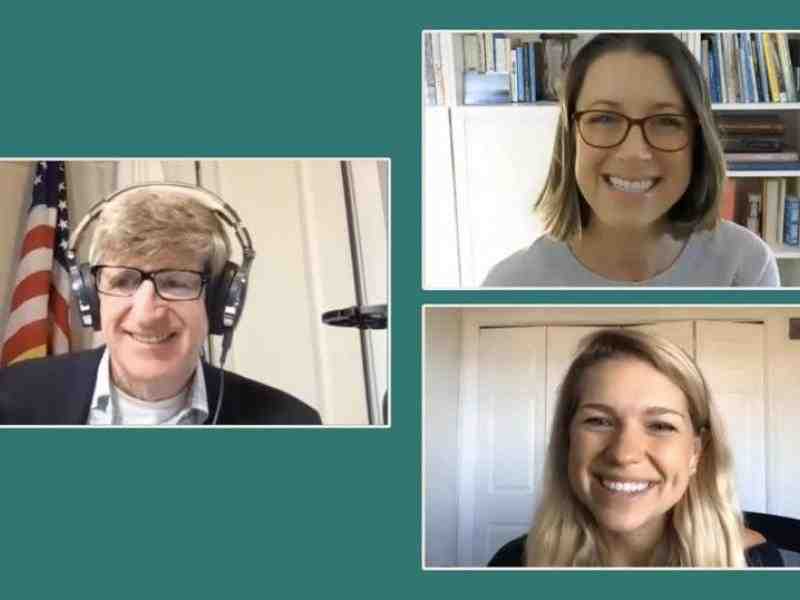 Tile image
Tile image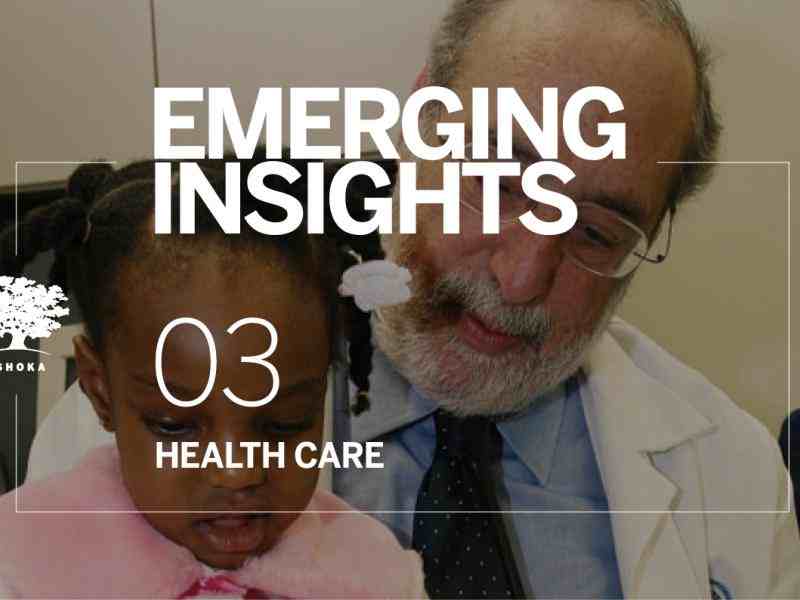 Tile image
Tile image